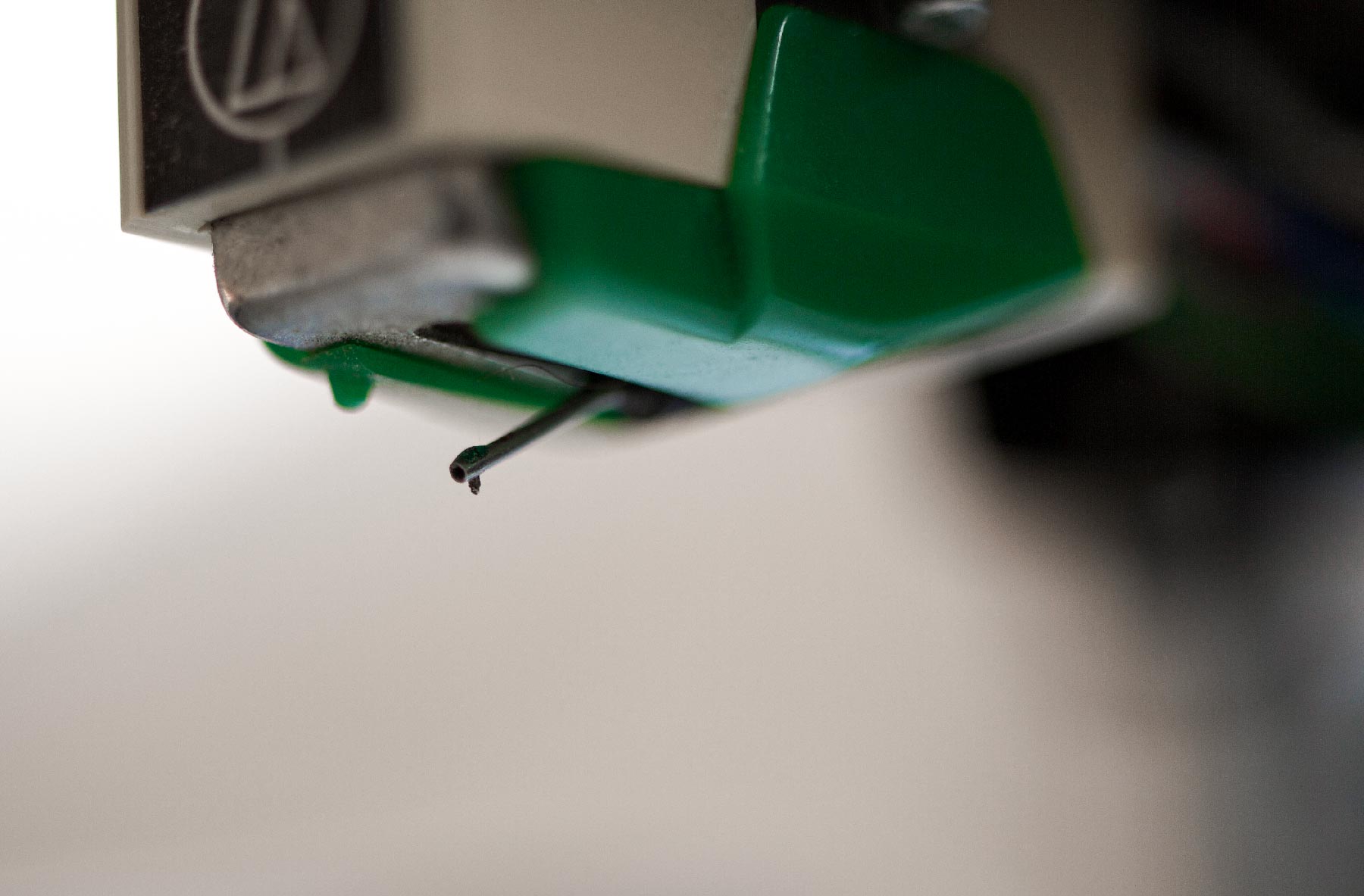Cartridges and Styli
When it comes to record players and turntables, there are a ton of different cartridges to choose from. Cartridges may vary in quality and parts used. From the diamond tip, cantilever, suspension, magnet quality, to the coils. Quite possibly the most important part is the diamond stylus. This is the little point that actually touches your records and runs through the grooves collecting the vibrations.
If your stylus isn’t working properly, it can’t do this job of reading vibrations very well. If you’re having trouble with your stylus, read our guide on How to Tell if Turntable Stylus is Bad
Stylus Types
There are a few different turntable stylus types to choose from. The different types of styli (plural of stylus) are point contact (conical, elliptical) and various line contact types. You may see MicroLine™ listed elsewhere but this is just a trademarked type of line contact stylus. While there are many different types of styli, there are two types that are more commonly seen due to their expense as well as other design factors. The two most common types are conical and elliptical point contact styli.
Between these two common types, the conical stylus type is most commonly used due to its simplicity and low cost. The conical type of stylus is simple in design and has a simple spherical tip, think of a ball-point pen tip as a reference. Elliptical has a spherical tip that’s been sharpened more. The elliptical shaped stylus is more expensive but with it comes a smaller contact radius and better tracing action of your record grooves. The elliptical shape is able to sit lower in the grooves, and pick up more of the subtle changes than a conical tip. What this means is that the elliptical shaped stylus is better equipped at translating your records and can pick up more details in your music!
The other stylus type is the line contact. Line contact styli are less common but do provide superior high-frequency tracking. These stylus tips are available in higher end more expensive cartridges. As a result of being sharper and more closely resembling a cutting needle these types of styli can produce more noise on older and more worn vinyls.
CONCLUSION
If you own a record player and listen to vinyl, eventually you’ll need to replace the cartridge / stylus. When that time comes and you look at new options, keep these details in mind. Happy listening!
